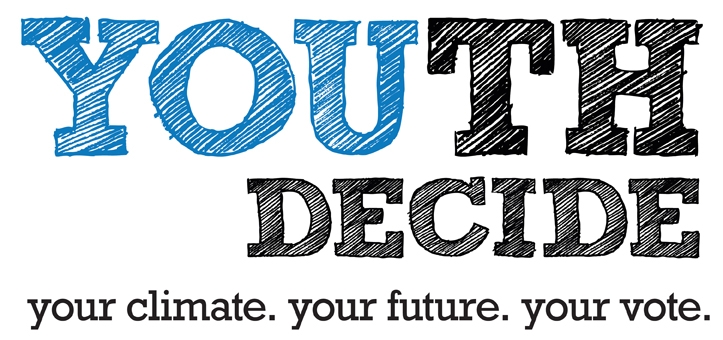BREXIT – A LESSON FOR OUR YOUTH!
On Thursday, 23 June 2016, the United Kingdom comprising: England, Wales, Scotland and Northern Ireland, held a referendum when voters were asked a simple question: Whether or not, they wished to ‘Leave’ or ‘Remain’ in the European Union (EU).
WHAT IS THE EU
The EU is an economic and political partnership involving 28 European countries and began after World War Two, to foster economic co-operation, with the idea that countries which trade together are more likely to avoid going to war with each other. It has since grown to become a “single market” allowing goods and people to move around, basically as if the member states were one country. The EU has its own currency, the Euro (€), and Britain has its own: The British Pound (£)
DIFFERENCE BETWEEN A REFERENDUM AND A GENERAL ELECTION
Unlike an election which is a formal decision making process by which members of the population (voters) elect a representative, a referendum (also known as a Plebiscite – a term derived from the Latin word ‘plebiscitum’ which means ‘common people’s decree’), is a direct vote in which an entire electorate is asked to either accept or reject a particular proposal, issue or question.
The results were as follows: Leave won by 52% to 48%. The referendum turnout was 71.8%, with more than 30 million people voting. It was the highest turnout in a UK-wide vote since the 1992 general election. England and Wales voted to Leave while Scotland and Northern Ireland voted to Remain, in the EU.
WHAT DOES BREXIT MEAN?
Brexit is a word that has become used as a shorthand way of saying the UK leaving the EU – merging the words Britain and exit to get Brexit, in the same way as a previous Greece exit from the EU was dubbed Grexit. Greece never voted on this and is still a member of the EU.
IS THE UK STILL PART OF THE EU?
Yes. For the UK to leave the EU it has to invoke an agreement called Article 50 of the Lisbon Treaty – which it did in March 2017. So now, two to three years negotiations commence but until then, the UK will continue to be a member of the EU.
UK YOUTHS AND THE BREXIT VOTE
75% of 18-24 yr olds in the UK, voted to Remain in the EU. As such, many young people are feeling let down by a democratic system that produced a result that they didn’t like. UK youths have enjoyed the freedom of movement that the EU offered them, and feel they have benefited overall from Britain being a member. The problem is, many UK youth, like many youths across world, do not bother turn up to vote. These 25% who could not be bothered to vote, could have changed the result. Remember, EVERY vote counts. In addition, when young people don’t vote, politicians ignore them in their policies. It’s a cycle that creates more disillusioned young people who don’t vote, which means politicians ignore them even more The fact that UK youth are now complaining, marching, posting on social media is too little too late. What they should have done, was vote with their feet i.e turn up to a polling booth and cast their vote.
Interestingly enough, this referendum date coincided with a large music festival called Glastonbury – an event where over 100,000 people attend and, which attracts many youth. These youth pay for expensive tickets, often sleeping in the rain in tents for days, to listen to music artists from all genres but these are the same youth who are too lazy to vote. The youth are now blaming the older generation for destroying their lives (with some not even speaking to parents who voted to Leave). Many older generation who voted to Leave, are dismissing these youth as nothing more than “Whining Millenial Children”.
WHAT CAN OUR YOUTH LEARN?
First. if you can prioritise important aspects of your life like: voting, passing your exams, getting a job, as you do on attending music festivals or parties, then guess what, your voice will have to be heard. If you insist on simply playing around and acting like children and relinquishing all responsibility expecting your parents to comfort you and make the world better, then you will be in for a shock. Our youth must learn from the mistakes of their UK counterparts; grow up and start to engage in real life. Social media 24/7 is not reality. In addition, burning schools, equipment, rioting and other acts of vandalism are nothing more than thuggery. What matters is, youth must unite, and encourage one another not to go on rampages which do nothing except cause misery and harm often to innocent victims i.e local men and women trying to run their businesses. Youths cannot see or hear of wrong doing and then remain silent as their peers burn their libraries? Youths must speak as one and participate in events as one united front (no tribe, religious, gender or other divisions).
For it is often the youth, who have the most of lose by not growing up and taking responsibility for their future. By 2050, Africa’s population is expected to reach 2 billion, how are you preparing for that?
By the time you wake up, it is too little, too late and no amount of Twitter trolling will change anything. Instead, use this energy to focus on matters that better your life and that of your family Start by seeking friends who take responsibility and face, rather than avoid challenges. Whether you like it or not, no one (not even your parents), can protect you from the challenges that lie ahead. So, Grow up! Click HERE to read more posts by Miriam
Sources: Miriam Mukasa, BBC http://www.bbc.com/news/uk-politics-32810887, UK Engage – http://www.uk-engage.org/…/what-is-the-difference-between-…/


